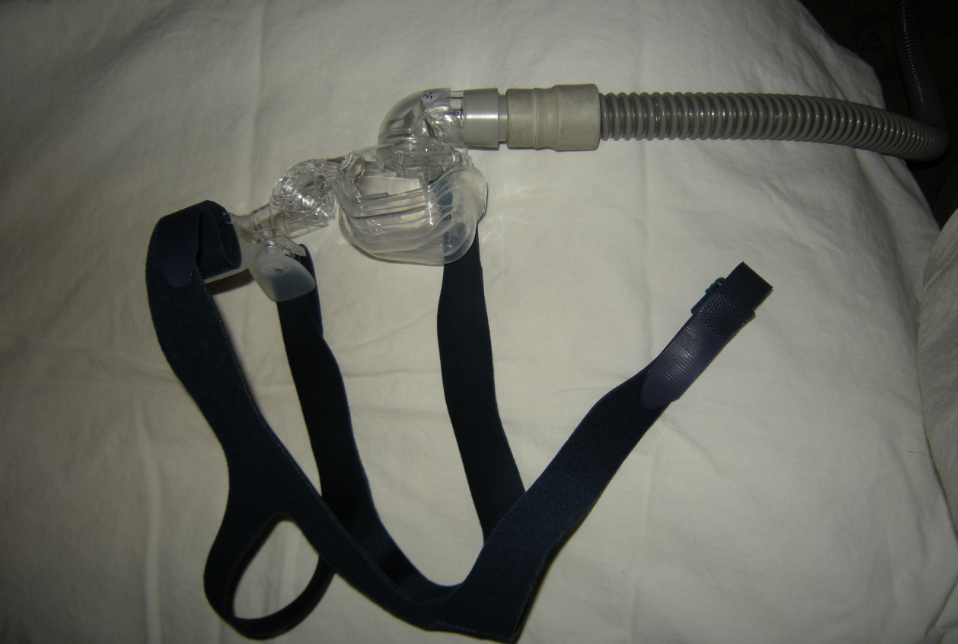

Sleep apnea is a sleep disorder that causes pauses in breathing while sleeping. Living with this disorder is undoubtedly challenging, but there are various treatments to minimise the effects of this disorder. Continuous Positive Airway Pressure (CPAP) therapy has revolutionised the treatment of this condition. One of the critical components of successful CPAP therapy is choosing the right CPAP mask.
There are many CPAP masks available, from nasal CPAP masks to hybrid CPAP masks and nasal pillow CPAP mask. The mask styles vary depending on the patient's breathing habits and preferences. For instance, an oral CPAP mask delivers positive air pressure through the mouthpiece. A hybrid CPAP mask is a full-face mask covering the patient's mouth and nose.
Thus, various CPAP mask types are available to cater to individual preferences and needs. This comprehensive guide will explore the different types of CPAP masks, including their design, advantages, and considerations to help you make an informed choice.
Nasal masks are one of the most common types of CPAP masks. They cover the nose, providing a seal around this area to deliver pressurised air. Here are some advantages of these types of CPAP masks:
Some individuals might feel claustrophobic with full-face CPAP masks. The design of nasal CPAP masks allows for a more open field of vision, making it suitable for claustrophobic patients.
Nasal masks are generally lightweight and easy to travel with.
These masks are designed for individuals who breathe through their noses. So, if you breathe from your mouth, you can experience discomfort and sometimes even air leaks. Moreover, it is unsuitable for individuals who suffer from nasal congestion or allergies.
As the name suggests, nasal pillow masks incorporate soft inserts (nasal pillows) that seal against the nostrils. They are more minimalistic compared to nasal masks and are used to treat obstructive sleep apnea. Some of the advantages of these masks are:
Nasal pillow masks are compact and provide an open field of vision, making them ideal for users who prefer a less obtrusive design.
Many users find these masks extremely comfortable and less likely to cause skin irritation. Soft inserts in the seal against the nostrils also add to your comfort level.
They are among the lightest CPAP masks, making them great for travel. Also, you won't feel any discomfort sleeping with the mask on.
Nasal pillow masks are designed for individuals who primarily breathe through their nose. You might need additional solutions to address this if you are a mouth breather. Some patients have reported nasal pillow masks as less effective at high air pressure settings.
Full-face masks cover the nose and mouth, ensuring that both airways receive pressurised air. They are ideal for users who breathe through their mouths, experience nasal congestion, or prefer the feeling of breathing through both the nose and mouth simultaneously. Key features and considerations for full-face masks include:
These masks provide a comprehensive solution for those who breathe through their mouth or have nasal issues. They are also suitable for individuals with deviated septums.
Full-face masks are less likely to cause discomfort or air pressure-induced side effects, making them a good choice for high-pressure settings.
Full-face masks work well even with facial hair, ensuring a consistent seal for users with beards or moustaches.
Full-face masks can be a lot for some people, especially those who are claustrophobic. The bulkiness of the mask can also make it hard to adjust and wear them. Another downside of a full face mask is the risk of skin irritation. Extended contact with the skin, especially around the bridge of the nose and cheeks, can sometimes lead to skin irritation and pressure sores. To prevent this, proper maintenance and cushion selection are essential.
Oral masks are designed specifically for mouth breathers. These masks cover the mouth but leave the nose uncovered, allowing users to breathe through their mouth while receiving pressurised air. Key features and considerations for oral masks include:
Oral masks provide a tailored solution for individuals who primarily breathe through their mouths.
Many users find oral masks comfortable and less intrusive than full-face masks.
By accommodating mouth breathers, oral masks can help improve sleep quality for this group of users.
Oral CPAP masks are designed for mouth breathers. Due to this reason, they are not suitable for individuals who primarily breathe through their nose. Using them in this way may result in ineffective therapy. Also, It is essential to ensure a proper fit to prevent air leaks, as these masks can be prone to leakage.
Hybrid masks combine both nasal and oral masks, typically featuring a nasal cushion covering the nose and a separate mouthpiece that seals around the mouth. Key features and considerations for hybrid masks include:
Hybrid masks are designed for nasal and mouth breathers, making them versatile for a broader range of users.
They offer an open field of vision and are less invasive compared to full-face masks.
Achieving the proper fit can be more challenging with hybrid masks due to the combination of two separate components, but it is crucial to prevent air leaks. Also, you may find the mouthpiece uncomfortable or restrictive, impacting their ability to sleep soundly.
Helmet masks are an innovative variation of full-face masks that resemble a helmet or headgear and cover the entire head, including the eyes, nose, mouth, and chin. They are popular in clinical settings and for users with certain medical conditions. Key features and considerations for helmet masks include:
Helmet masks provide extensive protection that makes them suitable for users with unique needs, such as those with neuromuscular disorders.
Their design reduces air leaks and can be a good choice for users who struggle with leakage in smaller masks.
Helmet masks are typically used in clinical settings or for specific medical conditions, so they may not be accessible to general CPAP users. Also, they can be challenging due to their complex design.
Leave a comment